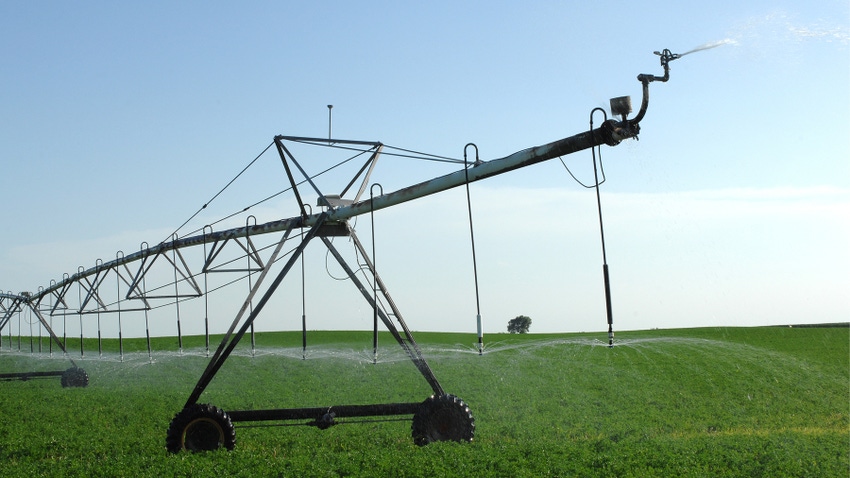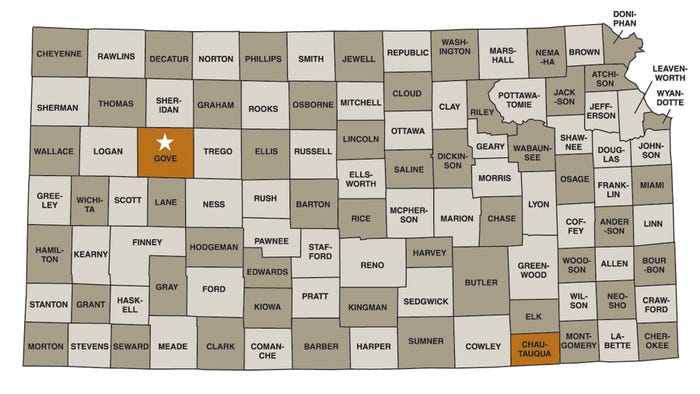
According to the January 2024 land values report released Jan. 10 by Farmers National Co., the ag land market is “resilient” at the start of the new year.
Paul Schadegg, senior vice president of real estate operations for Farmers National Co., says the sharp increase in land values in 2023 was driven by strong commodity markets. That may have slowed, but the land values have been maintained if you look at sales results in the last half of 2023.
In short, buyer demand has continued to be strong for quality cropland in the Midwest, and yet the supply of land for sale continues to be limited.
Other items to note from the report include:
Eighty percent of buyers continue to be local farmer-operators.
Available cash has limited how aggressive buyers are bidding at land sales. Schadegg attributes that to operators’ narrowing equity positions and an uptick in lending.
Interest expense will cut into net farm income in 2024 for farmers.
With the current appreciated value of land, some landowners are deciding to retain ownership, further reducing available properties for sale in 2024.
“Overall, we continued to see real estate prices flattening across Kansas, western Missouri, eastern Colorado and south-central Nebraska,” says Steve Morgan, Farmers National Co. area sales manager for the south-central region. “High-quality crop land was still selling for a premium, and our simulcast, live and online auctions continued to be very successful.”
In northwest Kansas, pasture sales have been strong because of higher cattle prices, but rising interest rates and an easing of profitability could slow the market’s growth.

A sampling of sales around the state shows these trends. Here are some recent sales:
Gove County. A little more than 5,565 acres of irrigated, dryland and grassland in Gove County, including current royalty production, was auctioned off in eight tracts Nov. 14. The contiguous tracts, located on the Gove-Trego county line, were nicely maintained.
The irrigated ground had good water and equipment, with newer electric motors and panels. The grassland was in very good condition with good fencing and water. And with the Smoky Hill River running through the middle of the property, it also provided ample wildlife habitat for the interested buyer.
Tract 1 was 192 acres of dryland, with 121 acres of grass or creek bed, and sold for $1,750 per acre. Tract 2 was 243 acres of dryland, with about 71 acres of grass or creek bed, and it sold for $1,550 per acre. Tract 3 was 131 acres of dryland with about 30 acres of grass, and it also sold for $1,550 per acre.
Tract 4A was 95 acres of irrigated ground, with a six-tower Reinke pivot and an eight-tower Valley pivot, permitted for 250 acre-feet at 1,330 gallons per minute, and sold for $1,350 per acre. Tract 4B was 830 acres of dryland, and it sold for $1,050 per acre. And Tract 4C was 1,536 acres of grass and creek bed ground, and it sold for $1,500 per acre.
Tract 5, with 231 acres of irrigated ground and 54 acres of dryland, included a 14-tower Reinke pivot, permitted for 252 acre-feet at 1,170 GPM. It sold for $2,750 per acre.
Tract 6 was 350 acres, including 220 acres of irrigated ground, 40 acres of dryland and the remainder in grass. It included a 10-tower Reinke pivot permitted for 451 acre-feet at 1,330 GPM, and it was planted to alfalfa. It sold for $2,900 per acre.
Tract 7 was a 900-acre parcel of mostly grassland with 112 acres of Conservation Reserve Program land and 22 acres of dryland crop ground. It sold for $900 per acre.
Tract 8 was a 660-acre block that included 405 acres of irrigated ground, 100 acres of dryland and the remaining acres in grass and creek bed. It also included an eight-tower Reinke pivot, and a 20-tower Reinke pivot, permitted for 350 acre-feet and 650 acre-feet, respectively. It sold for $2,900 per acre. The sellers were Don Albin Farms LLC and the Doug and Mary Albin Revocable Trust. Farm & Ranch Realty, Inc., Colby, Kan., handled the sale.
Chautauqua County. An 80-acre Flint Hills pasture, just 9 miles north of Cedar Vale, Kan., was sold at auction Nov. 8. The parcel was premium grazing land, but it’s accessible location and two ponds also made it an attractive homestead build site. It sold for $2,360 per acre. The James E Waller Revocable Trust was the seller. The online sale was handled by Farmers National Co.
To include a land auction or land sale in this monthly report, please email [email protected], or call 620-253-5497.
About the Author(s)
You May Also Like






